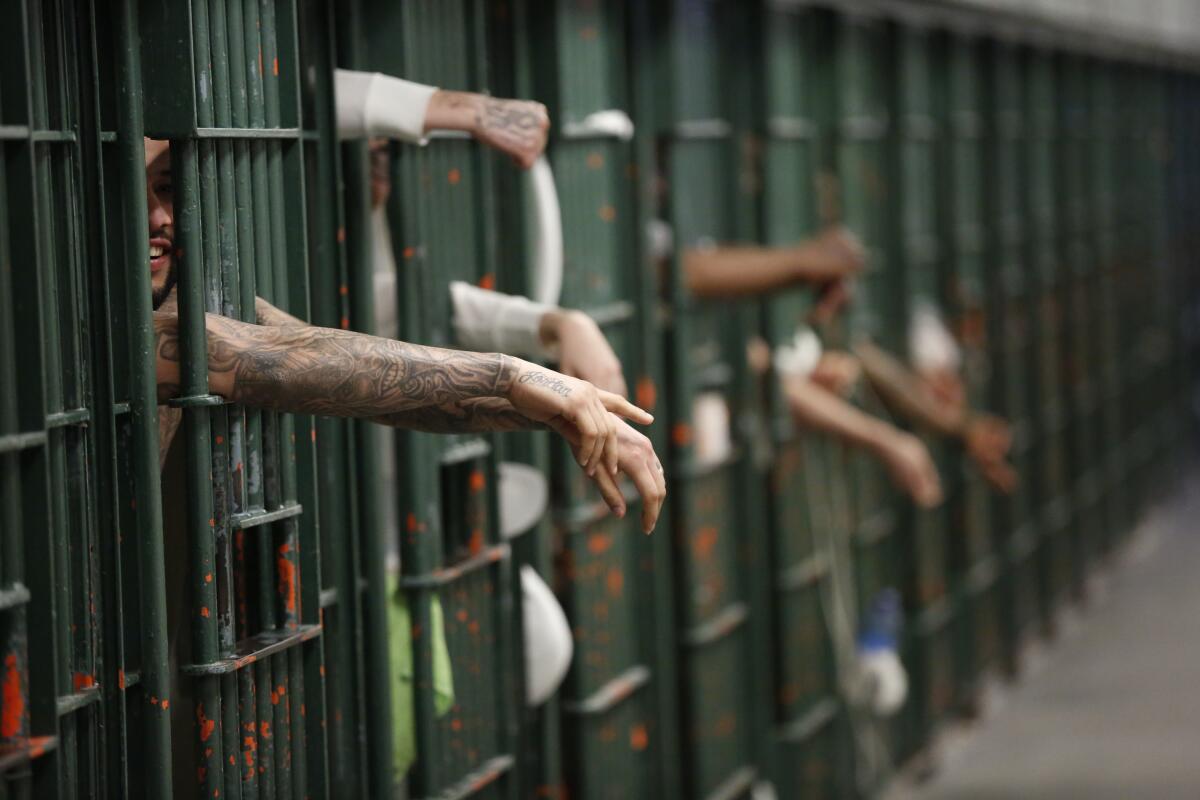Letters to the Editor: Jail is no place to treat mental illness. So what should L.A. County do?

- Share via
To the editor: Los Angeles County Superior Court Judge Terry Lee Smerling laments the number of mentally ill defendants in court who cannot be diverted to mental health treatment because of insufficient resources — yet in the same issue of The Times, a news article shows that the diversion programs are largely ineffective.
I suggest that diversion in lieu of criminal prosecution has failed because many chronically mentally ill and substance-addicted people lack the insight and judgment to participate meaningfully in voluntary programs. It would be more effective if the legal system would work together with mental healthcare providers by obtaining a conviction and then imposing treatment as a mandatory condition of probation.
The vague threat that if they don’t participate they might later be charged is much too abstract an incentive, compared with a weekend in jail as a probation violation if they drop out of treatment. This is an example of where “tough love” would be more effective than leaving the decision up to the afflicted individuals.
Cyril Barnert, M.D., Los Angeles
The writer is a retired clinical professor of psychiatry at UCLA.
..
To the editor: I wholeheartedly support the views expressed by Judge Smerling.
As a public defender who represents people living with mental illness facing criminal charges, and as a member of the L.A. County Public Defenders Union, I agree that the county must demonstrate its commitment to a “care first, jail last” vision of public safety by investing more money in alternatives to incarceration, like the county’s Office of Diversion and Reentry (ODR).
My clients’ mental health issues are often exacerbated while in custody, where conditions have been described by jail medical staff as a “human rights disaster.” Most of my clients living with mental illness are excellent candidates for community treatment. They need quality medical care, therapeutic support and housing services — the kind of assistance that does not exist behind bars.
It is simply unconscionable that people are suffering while incarcerated when we know that they could be in programs (such as ODR) that produce good results, if only the county would designate the funds necessary to expand those services.
Meredith Gallen, Los Angeles
The writer is a board member of the L.A. County Public Defenders Union - Local 148.






